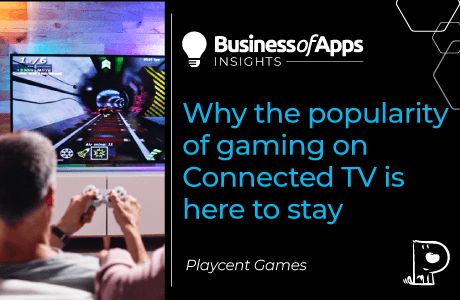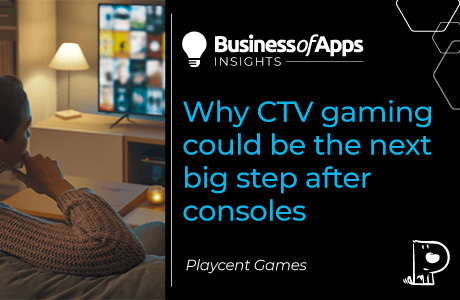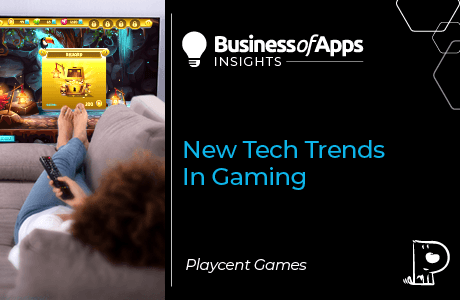People often think that the original is always the best, but that’s hardly the case, is it? History is replete with examples of concepts, technologies, ideas, etc., where the sequel is better than the original.
Many people prefer Diet Coke to the old recipe. Star Trek: The Next Generation was far superior to the original show with Captain Kirk, and Johnny Cash’s version of “Hurt” was far better than the one sung by Nine Inch Nails. Sometimes the new version or the copy is simply just better, and that applies especially to social gaming.
Social casinos as a part of social gaming provide the average gamers with a safe experience where they are unable to lose vast amounts of money, on one hand, and they are also easily integrated with most of the most popular big tech platforms available on the market. This allows users to create a social environment online where they can share their gaming experience with their friends and contacts. No wonder, social gaming is so popular.
The potential downside may already be apparent to some, namely that social casinos could collect a large amount of data from their users, which could end up in the wrong hands if not properly managed. That’s why big tech companies need to work with social games creators to ensure an enjoyable and data-safe experience for the gamer.
Why has social gaming become so popular?
Social gaming has become popular because it’s widely available via social media platforms, with Facebook being most associated with the phenomenon. The majority of social media users in most countries, especially those aged 30 and upwards, have a Facebook account, and social games are easy to integrate into this platform. When gamers use social apps, they’re able to escape from the world around them, and they’re also able to invite their friends, share their success, and publish posts about their thoughts on their game.
When combined with mobile devices, this immersive experience becomes even more enriching for the user, allowing them to escape from whatever situation they find themselves in and enjoy an invigorating gaming experience. They can leave behind their work or their commute, their long wait at the doctor’s, etc., for five minutes, 30 seconds, whatever, to receive a quick dopamine hit. It should therefore come as no surprise that social games like Crazino are frequently among the most downloaded from the Apple and Google Play stores.
The next element to consider is connected television (CTV), a now firmly established aspect of the media landscape that underwent massive growth as a result of the COVID-19 pandemic. This significantly expanded the integration of social casinos as major tech platforms were now able to offer more in-app purchases, generating considerable revenue for the creators of gaming apps and the platforms alike. Both Roku TV and Amazon Fire TV, two of the largest CTV platforms on the market, now include multiple casino games in their roster.
With all of these different platforms supporting social games, the options before the consumer have never been greater, not just in the number of apps that are available to them, but also in how they actually play. The integration between social media, mobile phones, and CTV means gamers can start playing one game on one device and continue at their leisure on the other, creating their own individualized gaming ecosystem.
This provides an unparalleled level of individual freedom for the user’s gaming experience; it also potentially collects huge amounts of data from various different sources. This needs to be managed properly if social game developers and their platforms are to stay on the right side of data protection legislation.
Companies that operate social casinos have to ensure they protect their users’ data, and gamers need to exercise responsibility for protecting their information as well. It’s crucial that they stay aware of data security best practices and implement them consistently during their gaming experiences.
What kinds of data are collected by social games?
While the amount and specific function of data collected will differ from app to app, each social casino will inevitably collect a large amount of data from its users, regardless of the device or platform it’s running on. Data is the currency of the modern world, and social casinos collect enough to be ‘cash-rich,’ with all those differences in playing habits, interaction patterns, personal info, etc., adding up to a treasure trove for analysis. However, this data can also be exploited if it falls into the wrong hands.
With that in mind, it’s important to fully understand the various types of data collected by social casinos. The most important include the following categories:
- Basic personal information: This category of data is the type most people tend to think of when it comes to personal data. This category includes one’s name, profile picture, date of birth and/or age, and gender, but can also include more specific info like salary, interests, etc.
- Contact information: Not all social gaming apps will collect information about the user’s contacts; however, sometimes it’s required to be able to connect to other players. This is especially the case for apps that run on social media platforms like Facebook.
- Location data: Location data is often viewed negatively by the wider public, who feel concerned that big tech companies are “spying” on their movements. However, it’s essential for providing users with personalized offers, verifying their legal ability to access certain games, and ensuring content localization.
- Device information: Social games often collect data about users’ devices, looking for key factors like operating system, device type, unique identifiers, etc. This helps developers to optimize their apps for various devices and troubleshoot technical issues.
- Payment data: Social games also support in-app purchases, allowing users to top up their virtual currency to enhance their play or to secure a specific prize. As such, these apps often collect payment information from the credit or debit cards used to make purchases.
- User experience data: It’s important for game developers and the platforms they publish their content on to monitor and analyze how gamers use their creations. User experience data collates information like how long users spend on the app on average, at what time of day, and other factors.
- Ad interactions: Finally, if a social casino app includes ads in its interface, then it’s important to collect data about how many people see the ad compared with how many interact with it. This will help both the game developer and the advertiser understand how lucrative the marketing content is or could be in the future.
Social games and big tech can work together
As you can imagine, this is a lot of data to properly manage and the potential for abuse is significant. There’s already debate about whether social casinos constitute gambling in the conventional sense, and several court cases are ongoing in the United States where gambling is banned in almost all jurisdictions.
A recent court case in California ruled in favor of social casinos appearing on social media platforms, but the ruling’s wider ramifications mean tech giants could become considerably more responsible for the content that appears on their platforms. Both parties would do better to work together and address the issues that affect social casinos proactively, which can be achieved in a number of ways.
Guidelines, innovation, and education
Governments, big tech companies, app developers, etc., would all benefit from working together to create a series of solid regulatory frameworks on what exactly constitutes a social casino, an issue under consideration as exemplified by the California court case. This should cover how they differ from conventional gambling, establish clear guidelines on how data should be governed and managed, and should also enshrine user protection guidelines. And these frameworks shouldn’t be set in stone; when new technology emerges, the rules should evolve in tandem with the cooperation and input of all stakeholders.
When these new technological advances occur, it’s important that big tech companies, mobile developers, CTV platforms, etc., ensure that they’re implemented in a manner that improves data protection. Information privacy is a major concern for consumers, and there’s no reason to skimp on ensuring safe information. Enhanced privacy settings, easy-to-understand data usage summaries, and opt-in mechanisms are all relatively simple measures tech companies can implement.
Conventional gambling is the Coca-Cola to the social games Diet Coke; the original version might be more prominent in popular consciousness but it’s also more harmful to the user. That’s why public education campaigns are important towards ensuring that the public is aware of the difference, and how to play these apps responsibly. The same campaigns can be used to raise awareness about data rights and protection.
Finally, it ensures privacy by providing users with clear and simple-to-understand privacy policies. This will ensure that gamers know everything about the data they’re required to provide to play social casino games, how it’s used, and how it’s protected for their benefit. It will also help to provide a more individualized experience for gamers too.
The takeaway
Social games offer a safe, more enjoyable experience for the gamer with none of the social problems associated with ‘real-world’ casinos or betting shops. They are a rare example of when the sequel or a remake is better than the original.
With cooperation between developers, tech companies, device manufacturers, and CTV platforms, social gaming platforms like Crazino can provide a valuable experience for millions. All it takes is a little more effort to ensure regulatory compliance and top-level data protection to create a new ecosystem of safe entertainment.











